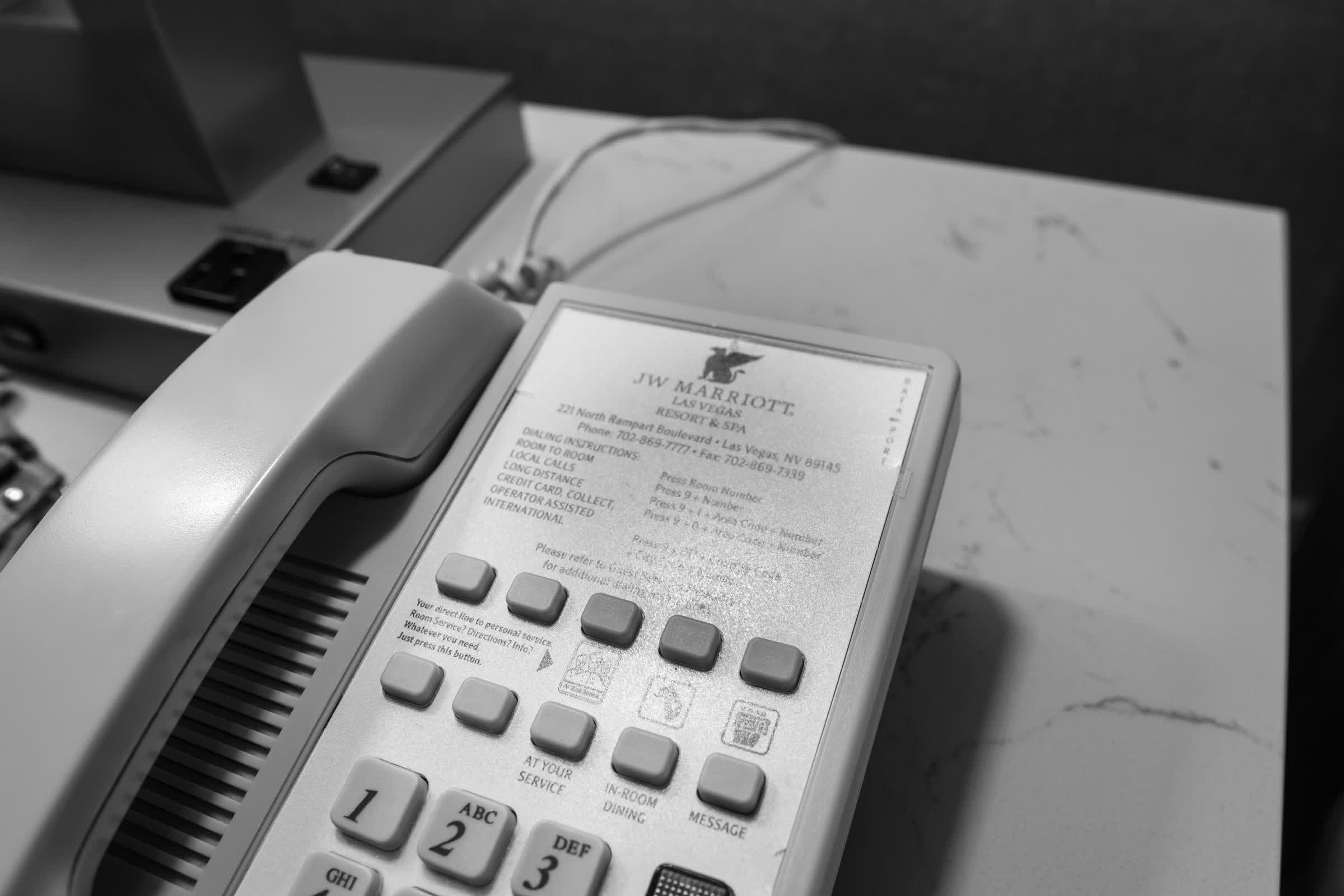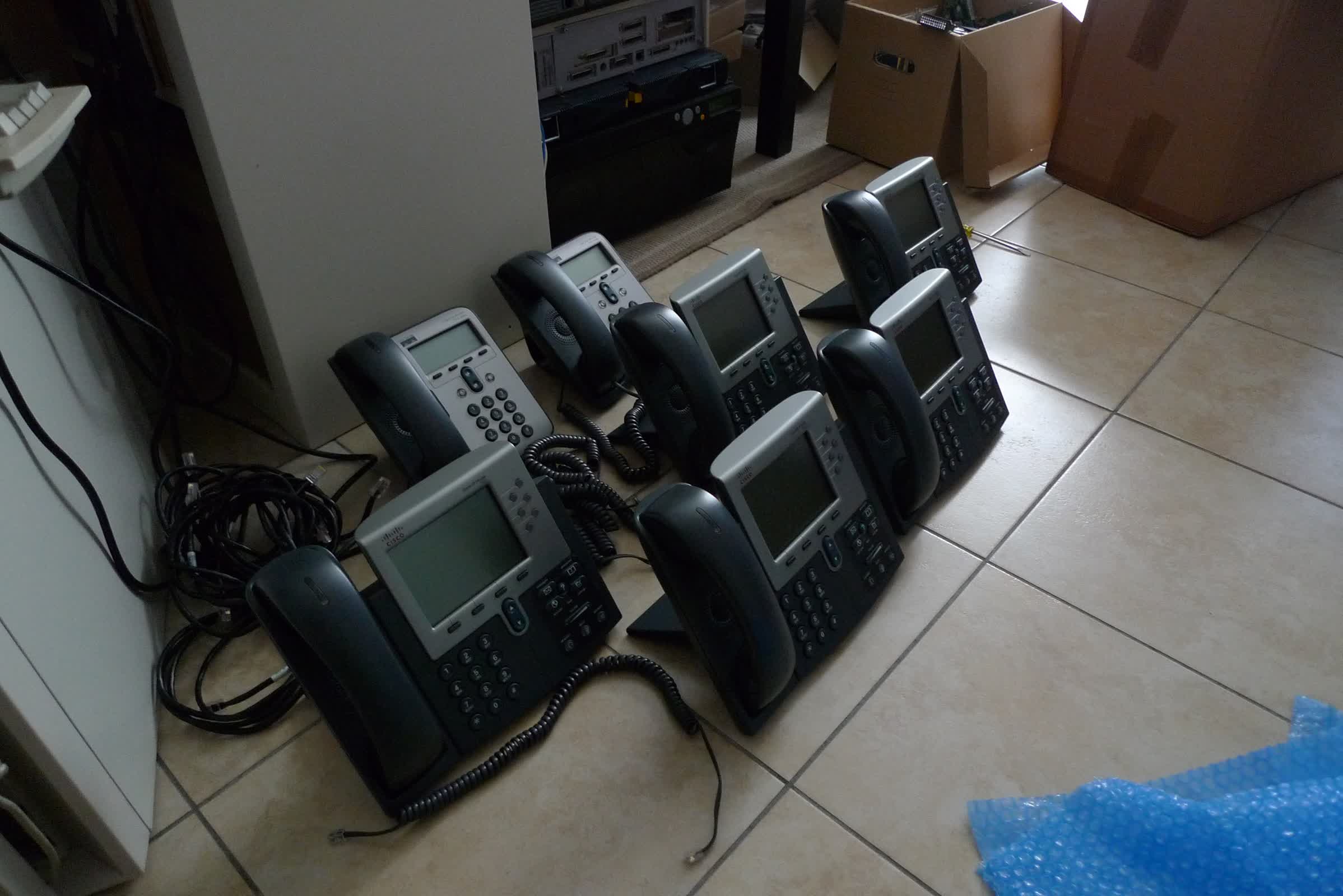Editor's take: In an era where smartphones and wireless technology dominate personal communication, the business world remains firmly attached to the landline. For many reasons, traditional copper-wire phones will continue to play a vital role in commercial environments, from hotels and hospitals to financial institutions and corporate offices.
However, the modern business landline has evolved, with many organizations transitioning from legacy copper systems to digital solutions that use Internet Protocol (IP) to transmit calls. This shift is driven by cost savings, convenience, and regulatory requirements, ensuring that companies like Cisco Systems and AT&T maintain a robust foothold in the phone market. According to Synergy Research Group, the global market for IP phones was valued at approximately $1.3 billion in 2024.
"It's a critical business," Zee Hussain, senior vice president of global enterprise solutions at AT&T, told the Wall Street Journal. Hussain explained that these phones are indispensable in settings ranging from hospital front desks to restaurant counters. In financial services, he noted, landlines help companies log, record, and track calls to meet regulatory standards.
Cisco, a major supplier of business phone systems, has seen a decline in sales to corporate knowledge workers, but demand remains steady in areas such as office receptions and hospitality. "In consumer, we don't use them that much anymore," said Snorre Kjesbu, Cisco's senior vice president and general manager of collaboration and employee experience technology. "But in business, it's actually a massive necessity."

Hotels, in particular, illustrate the enduring relevance of the landline. Steve Bearden, vice president of hosted voice for hospitality tech provider Allbridge, described how a typical 250-room hotel will house more than 300 physical phones, with at least one in every guest room and others located throughout the property. Some US jurisdictions require that hotels provide phones in every guest room, and even where not mandated, liability concerns encourage operators to maintain them in case guests with poor cell reception need to call emergency services.
"For the hotel space, I definitely don't see it going anywhere anytime soon," Cole Baker, vice president of hospitality management services at Oldham Goodwin, said. He added that removing in-room phones would diminish the guest experience, as many still use them to contact reception or order room service. Oldham Goodwin's own corporate office also offers desk phones for employees who prefer them, and Baker confirmed he was speaking from his landline during the interview with the WSJ.
Other industries are also weighing the future of desk phones. At New York Life Insurance, chief technology officer Kevin Glynn said every desk is currently equipped with a physical phone, though that might change as the company migrates to software-based calling systems. Glynn acknowledged the transition could be difficult for some employees, recalling a previous experience where a few staff members resisted giving up their handsets.
At the law firm McDermott Will & Emery, phones remain a fixture on most desks, a practice that co-head of technology and outsourcing Shawn Helms attributed largely to habit. But for some businesses, the separation of work and personal calls, along with the need to log and monitor communications for compliance, are critical reasons to keep landlines, AT&T's Hussain noted.
Landline handsets from AT&T are designed to streamline essential business functions such as transferring, merging, and recording calls – tasks that can be cumbersome on mobile devices. Both AT&T and Cisco continue to invest in their phone offerings, with Cisco integrating features like AI-powered background noise reduction to meet the evolving needs of business users.
